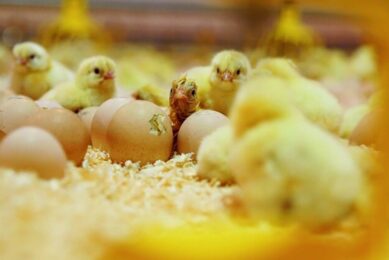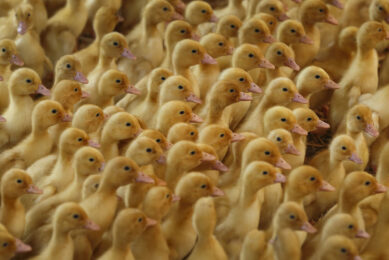Will global warming force biodiversity?

More extreme weather conditions, as part of emerging climate change may make it difficult for farmers to sustain highly specialized production.
A US study has calculated that diverse, synergistic farms can be profitable and simultaneously benefit the environment. Some farmers are successfully experimenting with biodiversity.
Take for example Takao Furuno’s duck/fish/rice/fruit farm in Japan. Furuno produces duck meat, duck eggs, fish meat, fruit, and rice without any purchased outside inputs. He uses a highly synergistic system of production on the same acreage where he previously only produced rice. In this new system, his rice yields have increased up to 50% over previous yields from an energy-intensive rice monoculture.
Joel Salatin, of Polyface Farms near Swoope, Virginia (US) has developed a rotational grazing production system featuring pastures containing at least 40 varieties of plants and numerous animal species. Salatin’s farm uses little fossil fuel, yet the farm is highly productive. The 57-hectare farm annually produces 30,000 dozen eggs, 10,000 to 12,000 broilers, 100 beef animals, 250 pigs, 800 turkeys, and 600 rabbits.
Farming systems that are less energy intensive, more flexible in the face of unstable climates, and that produce a variety of products could be the future of agriculture. When farms convert from corn/soybean monocultures to more diverse operations, net farm income can increase by as much as 108% while generating significant environmental and social benefits.
Related articles:
Join 31,000+ subscribers
Subscribe to our newsletter to stay updated about all the need-to-know content in the poultry sector, three times a week. Beheer
Beheer








 WP Admin
WP Admin  Bewerk bericht
Bewerk bericht